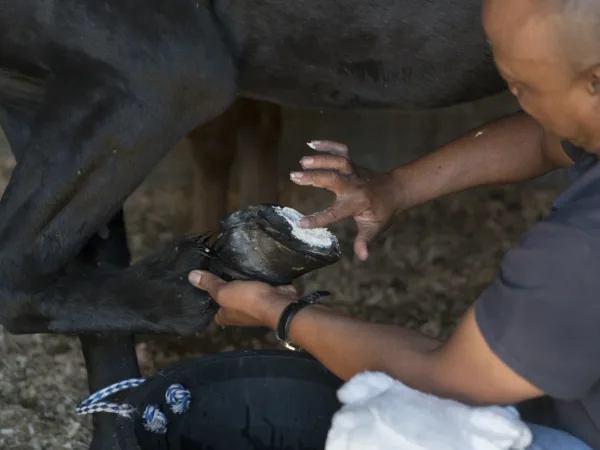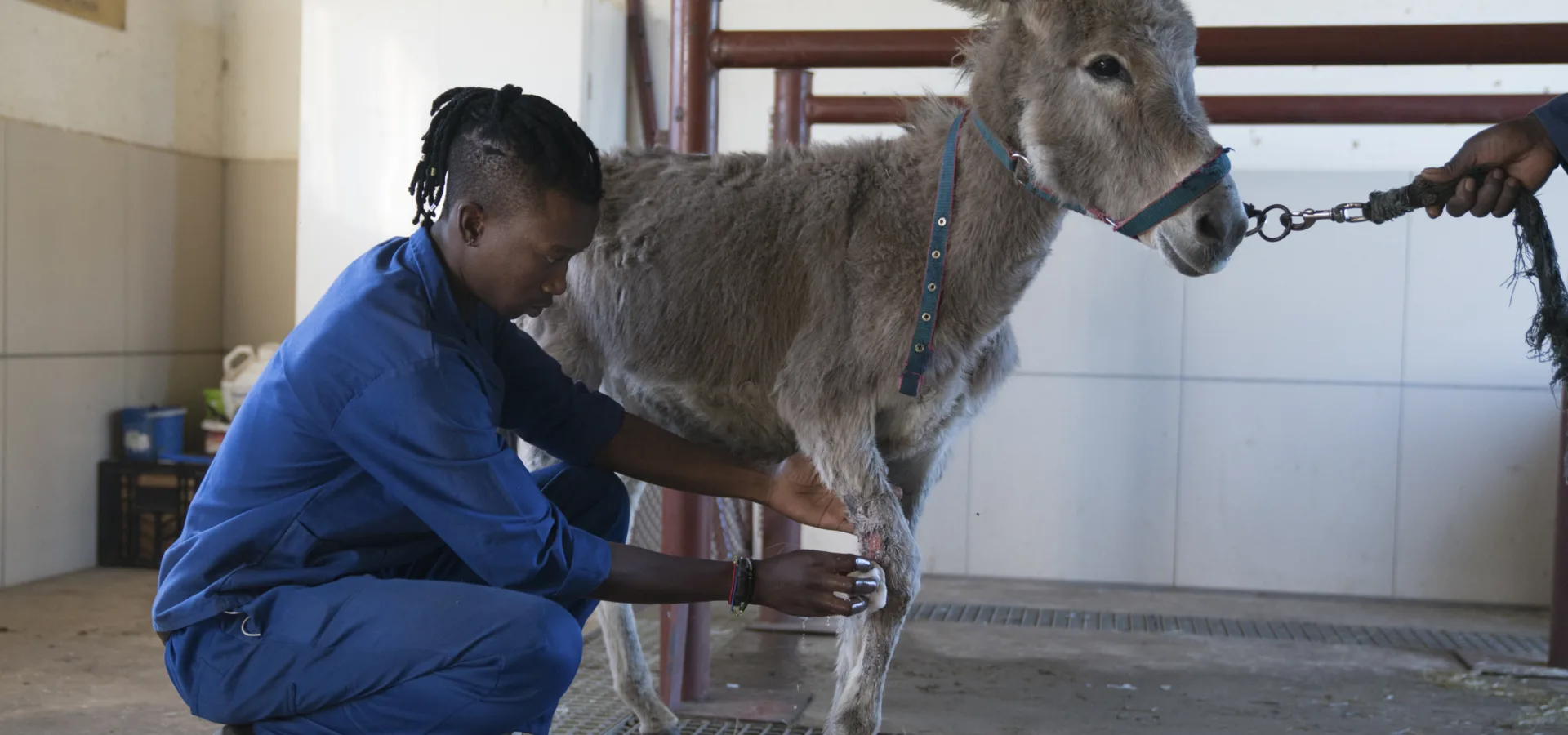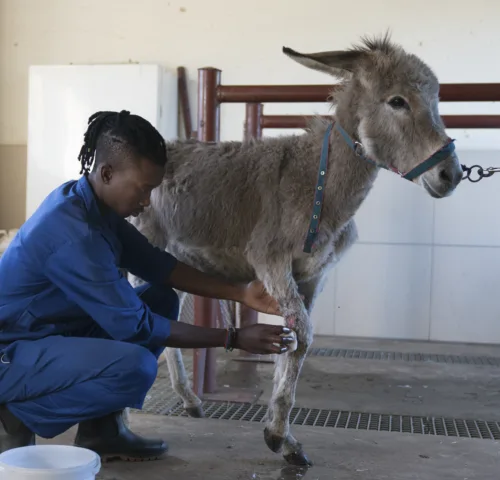Tetanus is a non-contagious bacterial infection that, if left untreated, is usually fatal to animals. The condition is also known as ‘lockjaw’ – since the animal’s mouth clamps shut as the disease progresses, resulting in an inability to eat or drink.
As one of the most severe infections that animals, particularly working ones, can contract, tetanus needs to be widely understood. We have created this guide to help explain what tetanus is, the symptoms to look out for and, most importantly, how to treat tetanus.
What are the causes of tetanus?
The bacteria that form the tetanus-causing neurotoxins are commonly found in soil and can survive for long periods. Equines and livestock, such as cattle, are particularly susceptible because of their environment, tendency to suffer injuries, and frequent use as working animals.
Typically, animals contract the disease from high-risk situations that result in tetanus infection. Causes include:
- Bacteria entering the body through wounds, such as puncture wounds into the foot, which provides a suitable anaerobic environment
- In foals, infection can occur through the umbilical region, via a broken umbilical cord or from the umbilical stump
- Castration wounds
Once the bacteria has entered the body, it can take up to three weeks before symptoms begin to show.

What are the symptoms of tetanus?
‘What does tetanus do?’ is a question that many people ask. Here are a few notable symptoms and effects that can help identify whether an animal has tetanus.
- Ears become upright
- Tail Stiffening
- Dilated Nostrils
- The ‘Sawhorse’ stance, with front legs stretched out and hind feet positioned further back – this is a key clinical characteristic of tetanus infection, describing the way a horse with tetanus will stand as their body becomes more rigid and stiff
- Loss of appetite or difficulty in eating – this is often in relation to lockjaw
- Difficulty moving around – as the toxins attack the nervous system, infected animals will develop worsening muscular stiffness and spasms
- Inability to stand
- Third eyelid protrusion – the membrane that can be seen in the corner of the eye starts to bulge
- Body sweats
- Anxious expressions, because of facial muscle spasms
- In severely advanced cases, animal may collapse with spasms and also suffer respiratory failure

How to treat tetanus
Unfortunately, once it takes hold, deadly toxins produced by the infection attack the infected animal’s nervous system. This often results in a fatality. However, if diagnosed early, vets may be able to provide treatment aimed at killing the bacteria.
Because of this, it is usually easier to prevent tetanus with vaccinations than trying to treat it. Initial vaccines are generally administered via two injections, followed by an annual booster, which ensures animals are well protected throughout their lives.
Although foals are usually vaccinated from five to six months, they are born with some protection passed on from their mother’s milk if a mare has been vaccinated. This means it’s crucial to ensure pregnant mares are up to date with their vaccinations before giving birth.
Good first aid care can help prevent the risk of tetanus too. Wounds should be cleaned and wrapped as soon as they occur to minimise infection. It’s advised to also regularly check for puncture wounds in animals’ feet where animals may have stepped on something, such as a rusty nail, and can walk through contaminated soil. Similarly, reducing the risk of injury as much as possible can help.
Suppose an animal does suffer from a wound, and you are unsure whether their tetanus vaccines are up to date? In that case, it is vital to seek advice from a veterinarian as soon as possible. Once the symptoms listed above are being demonstrated, it is often challenging to treat tetanus in animals.
SPANA’s tetanus appeal
At SPANA, our teams work in countries where, unfortunately, a tetanus vaccine isn’t commonly available. This is one of the reasons our work is so vital. Your kind donations can help our tetanus appeal, allowing us to continue treating and vaccinating as many animals as we can. Though it is a preventable infection, too many working animals are still at high risk of contracting tetanus on a daily basis, having not received a vaccination. Get involved with the work we do and donate today to help us support working animals with lifesaving care.


